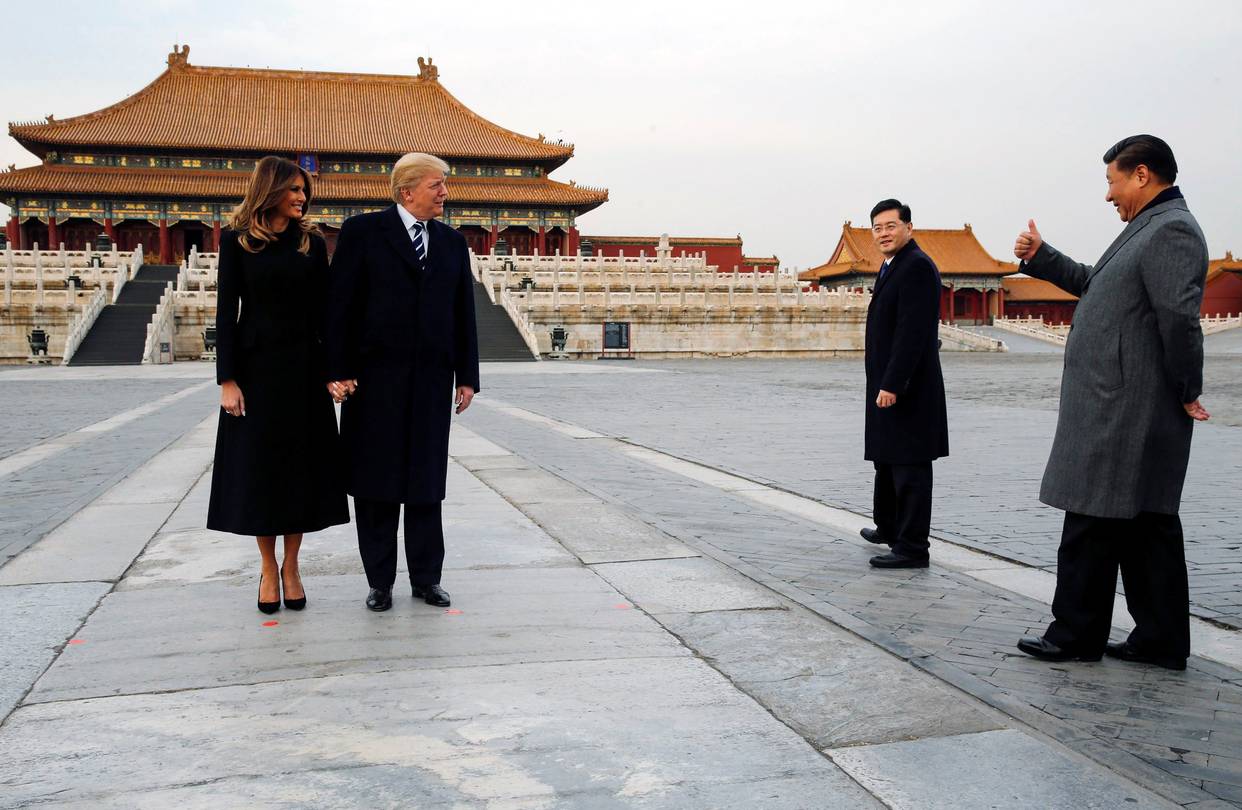
Wall Street Journal said that a month before President Donald Trump's visit to Beijing, Chinese officials presented an offer they thought Washington couldn't refuse. China proposed that during the trip, Mr. Trump and his counterpart, Xi Jinping, unveil a plan to widen foreign firms' access to China's vast financial industry, according to people with knowledge of the matter. It was a move previous U.S. administrations had sought for years. To Beijing's consternation, according to the people, Washington wasn't interested. The offer was made a second time during one of Mr. Trump's meetings at the Great Hall of the People. Hours after Air Force One took off from Beijing, China announced the opening on its own.The cold shoulder from the White House reflects a fundamental shift in how the U.S. manages it relationship with China, one that suggests a bold gamble and a rocky road ahead despite the bonhomie of the presidential summit earlier this month in Beijing.The Trump administration, which recently completed a comprehensive review of China policy, is rejecting the longstanding practice of eking out concessions from Beijing on trade and market access around high-level meetings... The administration is now investigating trade sanctions or enforcement actions against China with the goal of fundamentally challenging Chinese trade practices. The White House is also trying to invest in the personal relationship between Mr. Trump and Mr. Xi in order to absorb some of the shock of the coming trade measures.That helps explain Mr. Trump's unorthodox blend of tough talk on trade and effusive praise for Mr. Xi in Beijing. In China and around the globe, the White House is aiming to make an asset out of Mr. Trump's unpredictability, which has been criticized by foreign-policy experts as a destabilizing influence on international negotiations over trade and national security.
Bloomberg opines that Chinese President Xi Jinping recently laid out a bold vision for transforming his country into a fully developed economy by 2050, with a particular emphasis on spurring innovation and technology. Given China's current level of human capital -- and some looming changes in the world economy -- that may be harder than he expects.A widely held view in the West is that China's schools are brimming with math and science whizzes, just the kind of students that companies of the future will need. But this is misleading: For years, headline-grabbing studies showing China's prowess on standardized tests evaluated only kids in rich and unrepresentative areas. When its broader population was included, China's ranking dropped across all subject areas...Making matters worse are the millions of children in rural areas who are being raised by their extended families.Stanford economist Scott Rozelle has referred to this as an "invisible crisis" in the making: In the coming decades, he estimates, some 400 million underprepared Chinese could be looking for work...Sustaining an advanced, service-based economy isn't possible when only 25 percent of the working-age population has a high-school degree...Raising the level of education more broadly will require both investment and reform - more investment, overhauling the houkou system, as well as reforming curriculums.
- 2017-11-17 Is it time for U.S. concessions to defuse North Korea crisis? China says yes.
- 2017-11-16 Why the West Should Take China's Belt and Road Initiative Seriously
- 2017-11-15 China Will Send Envoy to North Korea, Likely to Urge Nuclear Talks
- 2017-11-14 Susan Rice: Trump Is Making China Great Again
- 2017-11-13 Trump has a long way to go on the road to fixing US-China trade
- 2017-11-12 After Trump's Bonhomie in Beijing, a Trade Face-Off Brews
- 2017-11-10 China's Xi preaches 'openness' and 'cooperation' after Trump comes out swinging
- 2017-11-09 Trump trades barbs for flattery in gambit to win over China
- 2017-11-08 Trump, in China, Seeks Help on North Korea
- 2017-11-07 Bitcoin proves hard to kill in China
- Bloomberg China Looks to the Dumb Money for Its Financial Industry
- Reuters China proposed three-phase plan for Rohingya issue
- New York Times Would You Pay $1000 for a Chinese Smartphone?
- www.huffingtonpost.com Donald Trump Says He Should Have Left UCLA Players Jailed In China
- Wall Street Journal How China's Acquisitive HNA Group Fell From Favor
- Bloomberg China's Quest for Clean Air Is Shaking Up Industry and Inflation
- Reuters China pledges another three years of 'toilet revolution' to boost tourism
- Reuters China military sets up website to report leaks, fake news
- Financial Times Beijing takes more control of international universities in China
- Fortune China's bike-sharing bubble goes bust
- New York Times China Envoy Discusses 'Situation of the Korean Peninsula' With North
- Financial Times Who will lead revived diplomatic initiative?
- Forbes Big Drop In China's Overseas Investment Is A Blip In Long-Term Outward Push
- www.huffingtonpost.com In the Era of Virtual Terrorism, All Cyber-Enabled Nations are Equal
- Financial Times China must reveal the true level of its GDP growth
